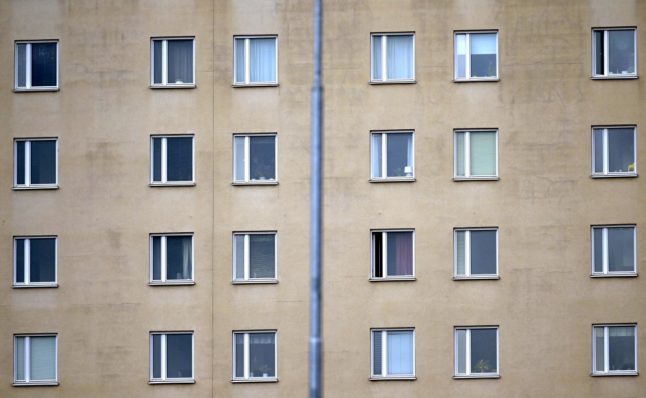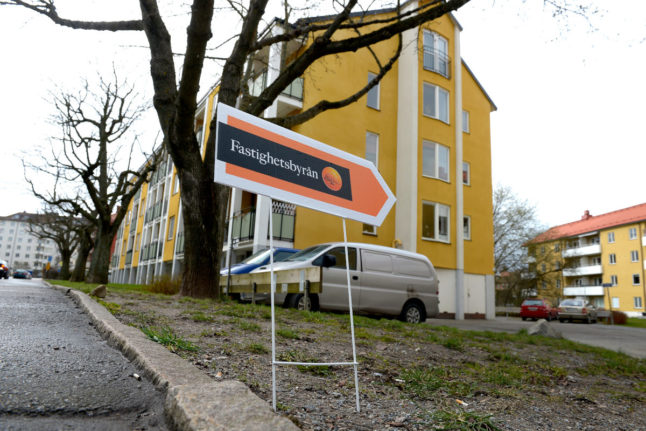Rent controls apply to many properties in Sweden, but in cities the queues for these so-called first-hand contracts are so long that many are left relying on sublets or ‘second-hand’ rentals, especially if you are an international resident who has not been able to save up points in the queue system.
The cost of these second-hand rentals has soared over the past decade, but what many do not know is that strict rules apply to how much a landlord subletting a first-hand rental is allowed to charge the person renting their apartment – and that you can get money back if you have been overcharged.
So what should you do if you think you have been paying too much rent?

First of all, you could try to just talk to your landlord. It is often the case that they’re not aware of the rules themselves, and perhaps you can work out a compromise without sparking a conflict.
The second step, if you happen to be a member of the Swedish Tenants’ Association (Hyresgästföreningen), is to ask them for help. If not, you should turn to the Swedish Rent and Tenancy Tribunal (Hyresnämnden) which is the court in charge of any rental disputes. Filing a complaint with the tribunal is free of charge.
Make sure you have documents showing how much you have been paying. Never rent an apartment without signing a lease that states how high the rent is, save your bank statements for proof that you have been paying the rent, and never pay anything in cash without getting a receipt for your money.
You need to file a complaint with the tribunal within three months of moving out of the apartment in order to claim money back. Sweden tightened its rental laws in October 2019, which means that if the tribunal decides that you are in the right, you can be reimbursed for excess rent dating as far back as two years.
If the tribunal rules you are entitled to money back, but you are not getting it, you should turn to Sweden’s Enforcement Authority (Kronofogden), which is responsible for chasing up unpaid debts.
RECOMMENDED READING:
It is also possible to file a complaint with the tribunal while still living in the apartment, in which case the tribunal will set the terms for your future stay in the apartment and lower the rent to reasonable levels.
What qualifies as reasonable rent (skälig hyra) depends on the type of accommodation and exactly what is included in your agreement. But for a hyresrätt (an apartment that the landlord is renting as part of a first-hand contract, rather than owning it themselves) the sum should not be much higher than the landlord’s own rent if the apartment is unfurnished, as Swedish law forbids making a profit from subletting.
More commonly, the apartment will be furnished, in which case the landlord is allowed to add around 10-15 percent to the second-hand rent, depending on exactly what is included. Things such as electricity, broadband or heating may also be factored in, depending on who pays the bills.
Note that if you are renting a bostadsrätt (an apartment owned by your landlord), the rules are slightly different, because in this case they have the right not only to cover their own costs but also to cover their mortgage and financing. This means that if the apartment is in an expensive area, they can charge a lot.
You can still dispute the rent while living in the apartment, but in this case you are not able to get any rent back retroactively, only get your future rent lowered. But since your landlord has the right to cut the lease short with three months’ notice, it may be less of a hassle in the end to try to find a new apartment.



 Please whitelist us to continue reading.
Please whitelist us to continue reading.
Where I work, a high % of coworkers hold permits. Paying them the threshold level means that more experienced non-permit holders will make less than them. There is a concern within management that those who do not require work permits will leave the company. This, of course, would make this company even more reliant on work-permitted, foreign labor. Politicizing this policy seems harmful for Swedish businesses and economy.